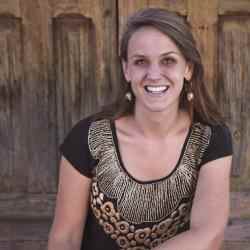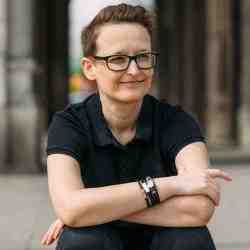Introdução
For Suely Carvalho, the solution to healthier and happier births, especially among the underprivileged, lies in using natural procedures with the help of well-trained midwives. Suely, a nursing midwife herself, plans to revitalize this dying profession by creating a strong network of these professionals and creating birth centers designed to provide appropriate services for women in labor.
A nova ideia
Suely has assisted hundreds of births in her profession, and she has learned to identify the very specific physical and psychological needs of women who are in labor--needs that modern medicine tends to mask and neglect. As a young nursing midwife in a hospital in Parana State, Suely monitored the final stages of up to 14 births per shift. She observed how out of place the women felt in a hospital environment, and how frightened and psychologically unprepared they were for a phenomenon nature had physically designed them for. While monitoring a birth through its various stages, Suely would try to calm the mother, massaging her belly and talking to her softly to put her at ease. She began to make small changes in hospital procedure that made big differences in the mothers' comfort: breathing exercises alleviated contractions and cramps; vaginal massages with natural ointments such as sesame seed oil eased the passage of the emerging fetus; and if the mother were in a half-seated position at the moment of expulsion, dilation increased by two full centimeters.To promote these practices, Suely wants to strengthen the group of professionals long linked with this tradition of giving birth -- midwives. For this, she is training health agents as midwives, identifying retired midwives and learning from them (recycling their know-how), and creating a national network of midwives.As this network gains strength, Suely will encourage the creation of "birth centers," especially in poor urban and remote rural areas where hospitals and services are scarce. A "birth center" is a house run by a midwife, with all the equipment needed for natural childbirth as well as pre- and post-natal care. One such birth center can serve a population of approximately 30,000. Suely also plans to persuade existing hospitals to organize the same type of services and eventually to include midwives in Brazil's national health system.
O problema
One generation ago in Brazil, most deliveries were assisted by lay midwives. Today, 99 percent of all births take place in hospitals. This rapid turn of events is due to several factors. Midwives have never been considered "professionals" in the modern sense. In Brazil, as in many other countries, the "craft" of midwifery is wreathed in mystique, presumably a leftover from the Middle Ages, when midwives were often feared for knowing the "secret of life." Also, being a woman's craft, the mystique carried over into modern times in the form of prejudice. Nonetheless, even recently, the lay midwife was considered a "special" person and, as such, was never paid for her services, receiving gifts instead. One generation ago, when women joined the workforce of a newly industrializing nation and began to earn wages, the craft, once passed on from older to younger women, began to fade out. The remaining lay midwives are today in their sixties and seventies.Meanwhile, the national medical system has been centralized and "modernized," yet the poor, of course, bear the brunt of its many inadequacies. Delivery-related statistics have deteriorated drastically. Brazil is the world champion in surgical interventions during delivery; mother/child morbidity rates due to hospital risks are among the highest in the world, and maternal death rates are horrifying (200 deaths for every 100,000 births). All of which represent enormous costs to the health system.
A estratégia
Suely's strategy is multifaceted. First, she is training health agents, identifying and retraining retired midwives in eight cities in Pernambuco State. This is the area where she will begin to set up her network.On another front she is working with the National Movement of Health Agents, a group that represents health agents in their struggle for official recognition as a category (e.g., for wage legislation, social benefits, etc.). Health agents, usually community leaders who have had some paramedical training, have come to form a vital link between poor communities and government health programs, and Suely is responsible for extending this proposal to include lay midwives. Health agents trained by Suely will become midwives, and lay midwives will be considered health agents. By winning professional status for midwives, which entails government recognition, established minimum wages, and retirement benefits, Suely is well on the way to guaranteeing the respectability and revival of this time-honored profession.Finally, once a national network of professional midwives is in place, Suely will work through it to establish birth centers, especially in poor communities and in rural areas.
A pessoa
Suely was born in Parana State, where she trained as a nurse and hospital midwife. She married and had children at a very early age, and had to divide her time and energy between furthering her education, raising her children, and making a living. Ten years ago, Suely moved to Pernambuco State. Unable to make a living with her profession, she designed a free-lance sales career that would provide an income and flexible working hours so that she could devote time to voluntary work with health programs in very poor communities and in the women's movement--especially on committees and organizations working to combat violence against women. She was co-founder of a major anti-violence organization and took a leading role in several others.




